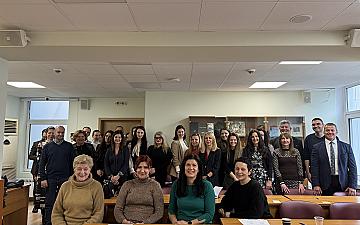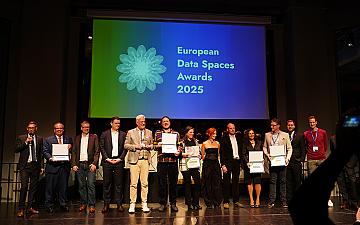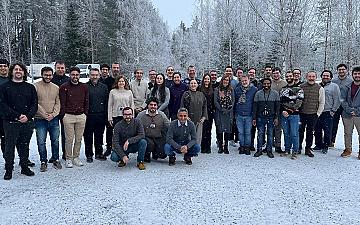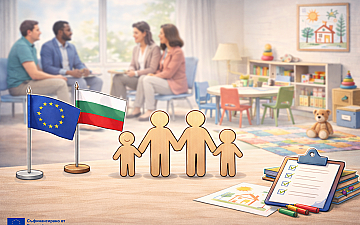Currently, the first encounter of asylum seekers with their main rights and obligations should be sought in the induction discussions the State Agency for Refugees (SAR) holds with them while they are in the Agency’s centres. Rights and obligations during the international protection procedure are discussed and are also enumerated on info posters throughout the centres. A substantial part of SAR integration activities are the integration profiles of foreigners prepared by the Agency’s officers, concerning foreigners’ demographics and labour skills in view of future integration.
The Agency’s efforts are complemented by NGO led initiatives, for example information videos in the SAR centres explaining to asylum seekers the international protection procedure, giving them practical information on Bulgaria and what services institutions and organisations can offer. Entities like UNHCR Bulgaria and the Foundation for Access to Rights have published information materials and brochures in various languages primarily containing explanations and details of rights and obligations of asylum seekers and beneficiaries of international protection (BIPs) and the procedure for granting asylum in Bulgaria.
Social and cultural adaptation is set as priority also in the Bulgarian language tuition programmes. Foreigners’ personal and professional realisation is seen as directly related not only to their language abilities, but also to them having sufficient information about the country’s cultural peculiarities, as this knowledge develops a sense of tolerance and respect.
Information sessions are regularly organised by major integration players like the Bulgarian Red Cross and the Council of Refugee Women in Bulgaria, where social workers also give status holding foreigners information about main state institutions. Information sessions and individual consultations are also provided to asylum seekers in SAR centres by mobile teams of lawyers, psychologists, social workers and mediators. In addition, cultural orientation courses are offered for foreigners detained in the migration detention centres with a focus on traditions and norms in Bulgaria, political and constitutional structure as well as providing an opportunity to gain other basic knowledge, skills and attitudes needed to adapt to the differences one meets within a new host country.
In the absence of a structured social orientation curriculum, individual consultations on foreigners’ rights and obligations turn out to be an important source of their social orientation. Those are provided by human rights NGOs like the Foundation for Access to Rights, the Bulgarian Helsinki Committee and the Center for Legal Aid – Voice in Bulgaria.
Internet resources asylum seekers and BIPs can use concentrate on the asylum procedure, while the rights and obligations of asylum seekers after receiving a status encompass mainly the right to work, education, family reunification and citizenship.
Major initiatives on social orientation for migrants in Bulgaria and throughout the EU are INTEGRA-TRAIN and RACCOMBAT.








